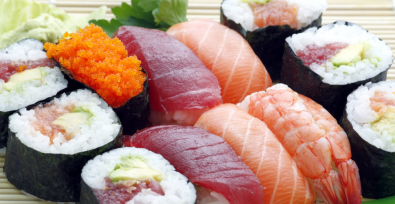The Marine Stewardship Council (MSC) is the world’s most recognized ecolabel for sustainable seafood. But Yahoo Finance reports new research published in Ocean Sustainability found that despite claims to the contrary, MSC has been failing to identify forced labor violations in the fisheries it certifies.
The high seas are hiding a fishy secret
Fishing on the high seas, particularly tuna fishing, has a well-earned reputation as one of the world’s most remote and dangerous jobs. Sadly, recent research has again found that limited visibility and difficulty enforcing regulations at sea is leading to more than a just good catch. It is estimated that 128,000 fishers are trapped in forced labor conditions. Doing intensely hazardous work far from shore for extremely low wages fishers must suffer in silence. Enduring unpaid or withheld wages, physical and psychological abuse and untreated illness and injury, workers are subjected to slavery at sea.
Oceana’s Senior Director of Global Policy Philip Chou said:
“Responsible shoppers around the world choose MSC-certified tuna, believing that the logo means their seafood meal was sustainably and responsibly caught, Unfortunately, (MSC) has failed to identify these egregious crimes and continues to profit off bad actors.”
Chou feels MSC certification could drive real change to stop forced labor in the seafood industry. But instead, they rely on problematic systems that do little to check abuse.
Report author Katrina Nakamura, PhD shared:
“In a matter of minutes, I was able to find multiple cases of forced labor on vessels that are part of MSC-certified fisheries by comparing data from the vessel registries of all tuna Regional Fisheries Management Organizations against highly publicized lists of implicated vessels,”
After analyzing data listed on MSC’s website from 3,313 tuna vessels she found that 74% of MSC’s certified sustainable tuna was untraceable to vessel owners or fishing employers. Nakamura said if it was that easy to find this information, it’s hard to believe MSC is unaware of the issue.
Self-reporting, no cross-checks and no proof required
It is well documented that supply-chain monitoring that is self-reported is suspect. Whether it’s clothing manufacturing, industrial assembly or fishing on the high seas, self- reporting inevitably leads to cover-ups. The MSC Standards currently rely on self-reported information not from employers or the vessels owners. Instead, they get their information from trade associations, manufacturers and distributors. This opens the door for ships who have been associated with slavery at sea to get the MSC label without accountability. Nakamura feels the MSC needs to have a far more effective barrier for protecting vulnerable workers.
Nakamura said:
“A more robust barrier would exclude all companies with any association to fisheries crime and include a firm rule that vessel owners be identified and screened against highly publicized lists of implicated vessels such as the Notice of Sanctions Actions published on the Federal Register of the United States.”
Currently the MSC also allows certificate-holders to deny any accusations of labor violations without demanding any proof. The MSC has recognized the concerns about forced labor and slavery at sea possibly tainting their supply chain. But their message and system remain unchanged. MSC still says the best way for to reduce supporting slavery at sea is to choose MSC certified tuna.
Nakamura takes issue with that idea, saying:
“This is clearly bad advice considering MSC clients include a company associated with a U.S. tuna ban for forced labor whose self-declaration states ‘no evidence of forced labor. The MSC should have a far more effective barrier for protecting vulnerable workers.”
Freedom United stands with Oceana in calling on world governments to apply the Global Charter for Fisheries Transparency and for the U.S. to take immediate action to address illegal fishing, seafood fraud, and human rights abuses in the U.S. seafood supply chain.







Freedom United is interested in hearing from our community and welcomes relevant, informed comments, advice, and insights that advance the conversation around our campaigns and advocacy. We value inclusivity and respect within our community. To be approved, your comments should be civil.